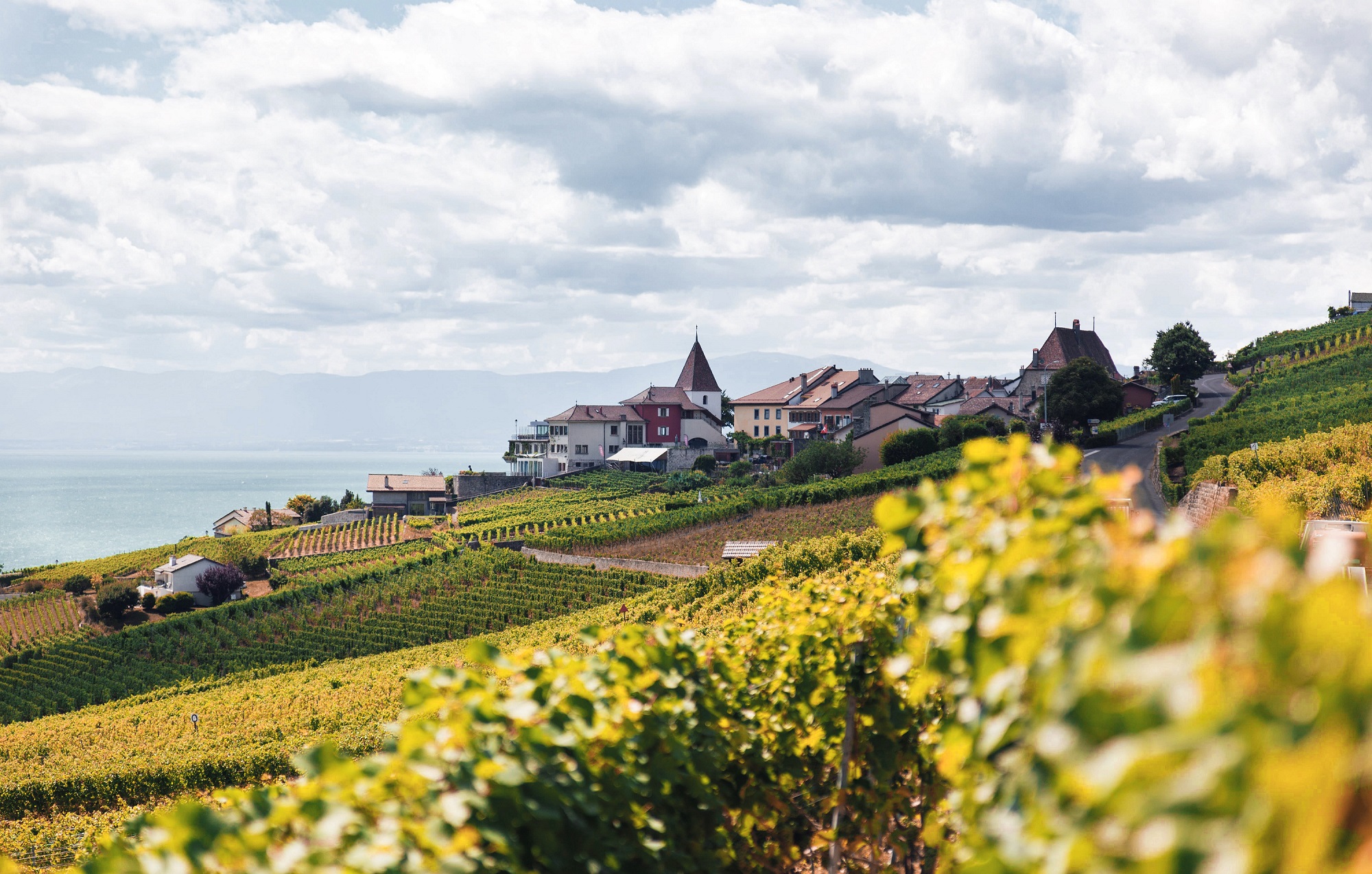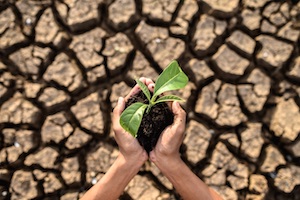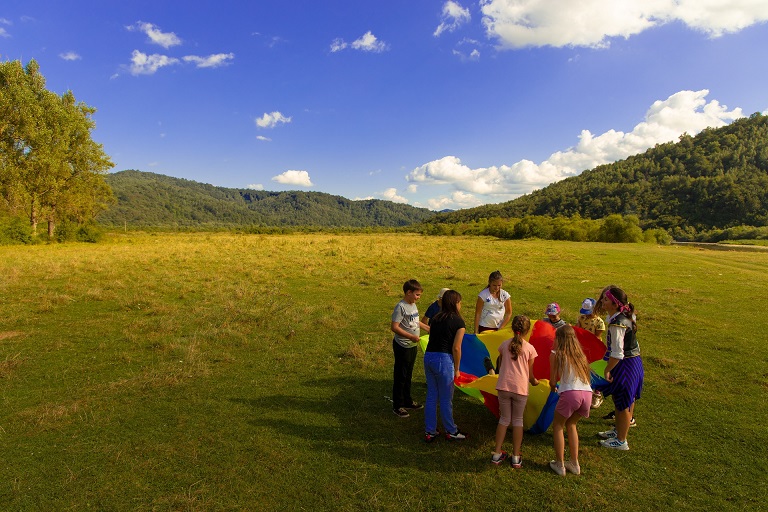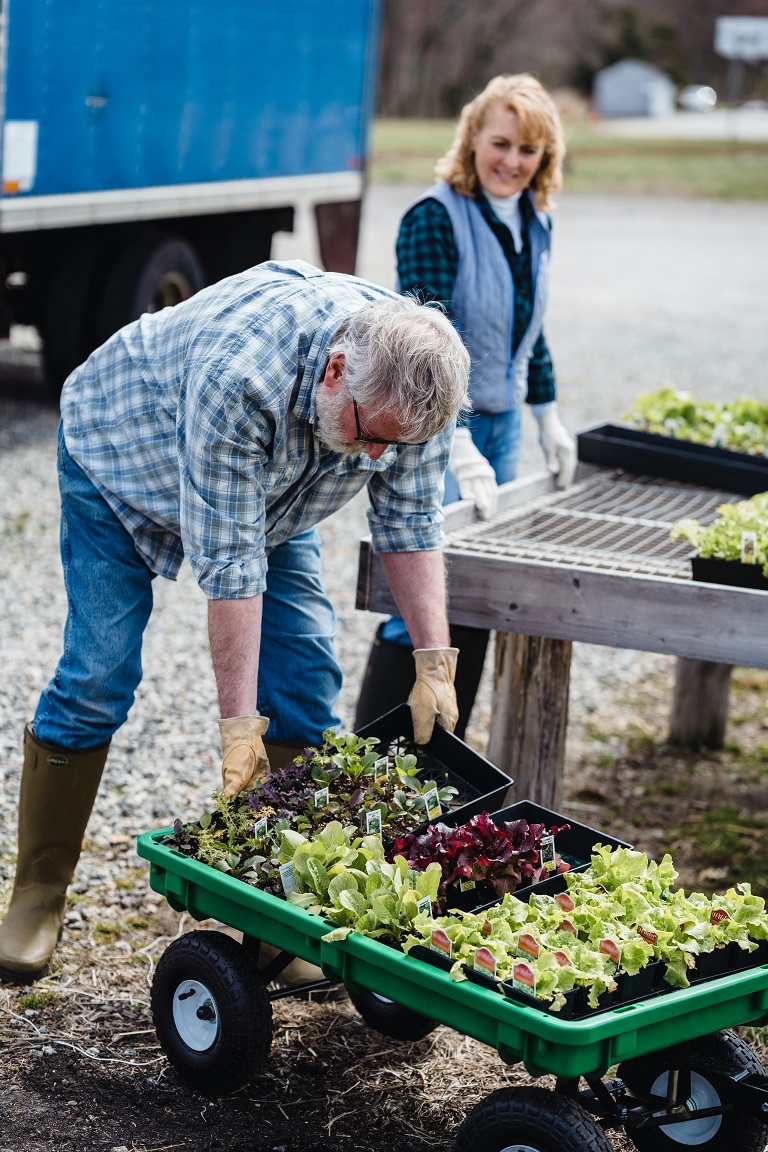WELCOME TO SHERPA RURAL PROJECT REPOSITORY
The SHERPA repository is a compilation of research outputs and findings from past and on-going projects related to rural areas.
It enables searches for outputs, findings and recommendations from research projects by topics relevant to rural areas of Europe.
It provides outputs of analysis of projects by topics and keywords, funding and research programmes. The Repository also provides access to the sets of SHERPA Discussion and Position Papers on selected rural topics.

A Long-Term Vision for Rural Areas is currently under development to enable them to make the most of their potential and support them in facing up to their own unique set of issues, from demographic change to connectivity, the risk of poverty and limited access to services. This should be done in close consultation with people living in rural areas, as well as local and regional authorities.
The aim is to create a debate at European level on the future of rural areas and the place they should have in our society. The main identified stakeholders for the consultation are farmers, consumers, agri-food sector, rural SMEs, Member States, regional and local authorities, civil society organisations, rural youth, NGOs, local action groups, rural networks, academics and interested individuals.
Associated Subtopics:
- Climate change and environmental services
- Demographic shift: depopulation, ageing
- Inequalities and well-being
- Infrastructure and basic services
- Shift in production and diversification of the rural economy

From the world’s great rainforests to small parks and gardens, from the blue whale to microscopic fungi, biodiversity is the extraordinary variety of life on Earth. We humans are part of, and fully dependent on, this web of life: it gives us the food we eat, filters the water we drink, and supplies the air we breathe.
Healthy and resilient societies depend on giving nature the space it needs. The recent COVID-19 pandemic is raising awareness of the links between our own health and the health of ecosystems. It is demonstrating the need for sustainable supply chains and consumption patterns that do not exceed planetary boundaries. Protecting and restoring biodiversity and well-functioning ecosystems is therefore key to boost our resilience and prevent the emergence and spread of future diseases.

Climate change affects rural areas differently than urban ones due to the high proportion of land covered by natural resources and agriculture. Recent developments indicate that climate change is already affecting agriculture, forestry, fishing and mining sectors as a consequence of increasing frequency and intensity of extreme weather events. Despite the fact that there is an increasing awareness of the need to develop appropriate responses at the local level, lagging rural areas are hindered by a lower adaptation capacity. Adaptation is likely to differ from one place to another due to historical context and the trend of implementation of adaptation measures.
Associated Subtopics:
- Climate adaptation
- Climate mitigation
- Climate transition
- Climate & Biodiversity
- Climate Change & Land Use
- Climate Change Data
- Climate Change Vulnerability
- Drivers of Climate Change
- Environmental Services
- Socio Economic of climate change
- Water Quality

Various characteristics and drivers influence labour markets, labour trends and employment potential in rural areas, as well as human and institutional capacities to innovate and to create new forms of governance (ETUDE project). Emergence of global value chains has been a key trend in recent decades, with certain production tasks progressively shifting to emerging economies with lower labour costs. The impact of these trends has, however, disproportionately affected some rural areas. The lack of jobs in some areas is an important challenge throughout Europe, especially in rural areas and even more so in the most peripheral regions. There is considerable potential in a more diversified rural economy through the agricultural and forestry sectors as well as through services.
Associated Subtopics:
- Agritech
- Bioeconomy
- Cicular Economy
- Culture
- Education & Training
- Governance
- Multifunctional Agriculture
- New Business Models
- New Entrants
- New Services
- Smart Rurality
- Traditional Products
- Types of Business

“Social dimension of rural areas” is a term referring to the social relationships occurring among the people living in rural areas. These relationships may vary in their intensity, extent, and quality, and can potentially influence the life of an individual for better or for worse. There is a long tradition of studying the characteristics of social relationships in rural areas. Debates on the issues of rural social life have started mainly in regard with the drawing of distinctions between the city and the countryside. Rural areas in Europe have been facing challenges for some time, such as demographic change (out-migration and an ageing population), a high risk of poverty, and a lack of access to basic amenities of broad societal importance. The ability to adapt and respond to challenges in rural areas depends on social relationships that, together with other resources, shape and reinforce opportunities.

Limited access to basic services and infrastructure and lack of fast broadband are among the main characteristics of rural and remote areas and exacerbate issues related to population depopulation, emigration, ageing, education, general and digital skills shortages, and the gender employment gap. Consequently, the risk of social exclusion and poverty is higher in rural areas than in cities. Digitalisation has the potential to mitigate these problems and, moreover, as stated in the European Green Deal, to support ecological transition and sustainable development.

Taking steps towards a climate-neutral, green, and fair continent is a priority for the European Commission. To achieve such an ambitious goal, a transition to renewable energy sources and energy efficiency, the promotion of sustainable agriculture, as well as the preservation of environmental systems and biodiversity are considered more than necessary. In the next few years, steps will need to be taken for the adoption and mainstreaming of environmentally friendly crop growing methods with a minimal contribution to the production of Green House Gas emissions. The use of chemical inputs will have to be significantly reduced, leaving room for more sustainable agro-ecological practices enabling the production of healthy and quality food, at affordable costs, for all.

Relations between producers and other actors in the supply chain are often characterised by mistrust and lack of solidarity because farmers have a perception of asymmetric distribution. It is therefore important to identify a set of feasible intervention measures to help facilitate improved farm management practices that can enable rural producers to continue meeting consumer demands, as well as ensure environmentally beneficial outcomes. By being one of the major contributors to climate change, food systems should embrace environmentally sustainable practices not only as a requirement for maintaining ecosystem stability, but also as a necessity for increasing the resilience and adaptability of ecosystems that underpin social and economic development in rural areas.

The empowering of regional and local institutions, as well as the actors in decision-making processes is essential to ensure that EU, national, regional, and local level policies are sufficiently cohesive to address specific rural challenges and meet the needs of rural inhabitants. The future growth of Europe’s rural areas is dependent on establishing stronger multi-level collaborative governance structures. The governance approach to rural policy development needs to be based on an open dialogue between institutions and stakeholders, and the inclusive participation of citizens facilitated by newly available (digital) tools. The governance and stakeholder engagement in rural policy-making processes highlights which future governance related measures and research is needed to improve the development and implementation of rural policies.



